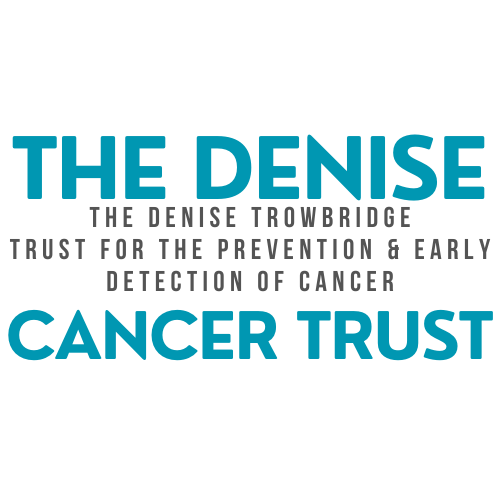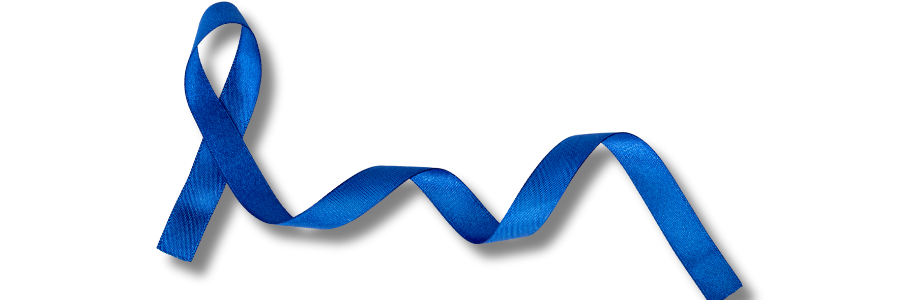
On March 5th, 2023…
Denise Trowbridge, my wife, best friend, and the wisest person I ever knew, died after a brief but ferocious and brave battle with cancer. Our daughter Alexandra and I miss her and will always miss her. That’s why we have established the Trust.
I am sure that many of you reading this have lost a partner, parent, child, relative or friend to cancer. I am equally sure that you feel a deep sense of grief and loss.
After Denise’s passing, our daughter Alexandra and I decided, in our own small way, to play a part in the battle to reduce the risk of death by cancer.
The Denise Trowbridge Trust for the Prevention and Early Detection of Cancer (The Denise Cancer Trust) is committed to providing funding in the Turks and Caicos Islands to encourage the prevention of cancer and to facilitate the early detection of cancer.
~ Brian Trowbridge, December 2023
The Bad News.
Here’s the bad news about cancer
One in 5 people in North America will be diagnosed with cancer by the age of 72.
Cancer is the 2nd leading cause of death (after heart disease) in the world, accounting for 10 million deaths per year and 1 in 6 deaths.
In 2017, there were more cancer deaths among people aged 45 to 64 than from heart disease, stroke and liver disease combined.
Recent data indicates that 40.2% of all new cancer cases are in the 35 to 64 years of age cohort.
Cancer is a very complex disease, and despite over $100 billion having been spent on cancer research in the United States alone, the mechanism by which cancers start and grow is often not understood. What is known is that the same type of cancer in 2 individuals will not necessarily exhibit the same tumour genomes. This makes fighting the disease enormously difficult.
With one exception, no drugs or vaccinations can prevent cancer. Gardasil and Gardasil 9, the HPV(human papillomavirus) vaccine, can prevent the incidence of certain types of cancer of the cervix, vagina, vulva, penis, anus and back of the throat.
Screening tests for cancer are only available with respect to a limited number of cancers: lung, breast, colorectal, prostate, and cervical.
Once cancer has metastasized (spread to other parts of the body from the original tumour), it becomes increasingly difficult to treat, and the survival rate plunges dramatically.
Currently available treatments for cancer (surgery, radiation, chemotherapy, and immunotherapy) are, in many cases, very difficult for the patient to tolerate and do not cure the cancer but simply slow its spread. This is why cancer patients who have been fortunate enough to have received treatment which stops the growth of cancer are described as being in “remission” and not cured.
At this point, you might be saying to yourself that cancer is a killer we cannot stop from robbing us of our lives and the lives of those we care about.
You would be wrong.
Here’s the Good News
While other than Gardasil, no vaccines or drugs can prevent cancer, we can reduce the risk of cancer by pursuing a healthy lifestyle.
Early detection fundamentally increases the odds of successful treatment of all cancers.

A friend of Denise and me was fond of saying, “I believe in moderation in everything except moderation”.
He meant that moderation in his life was so important to him that he wanted to ensure he was being scrupulously moderate.
It's probably a wise way to approach one’s lifestyle.
Much has been written about wellness in the last decade or so. Essentially, “wellness” is about two things: preventing disease, including cancer, by adopting a lifestyle that includes a healthy diet and exercise and monitoring our physical and mental well-being at all stages of our lives, not just when we become ill.
While we really know very little about the mechanism by which cancer occurs and how it grows, we do know that certain activities are bad for us and are directly correlated with the occurrence of various types of cancer. This means there are ways to reduce your risk.
We also know that certain types of food are unhealthy for us, and certain types of food are more healthy for us.
Research into the causes of diabetes has revealed that an early indicator of increased risk of a person developing Type 2 diabetes is insulin resistance. We also know that insulin resistance is associated with a significant increase in the risk of cancer. Obesity is the most common cause of insulin resistance. Obesity is linked to a higher risk of getting 13 types of cancer, which make up 40% of all cancers diagnosed in the United States every year. Obesity is something that can be prevented and is reversible. Diet and exercise are key factors in both preventing and reversing obesity. A new class of drugs, GLP -1 receptor agonists such as Ozempic, are effective in causing weight loss. Eat healthy and exercise.
Smoking is the leading cause of lung cancer. Smoking is also linked to cancer of the mouth and throat, stomach, colon, rectum, liver, pancreas, larynx, trachea, bronchus, renal pelvis, kidney, and cervix. And causes acute myeloid leukaemia. Don’t start smoking, and if you do, quit today.
Consumption of alcohol is linked to increased risk of stomach, pancreatic, and other cancers. Don’t drink alcohol, and if you do, moderate your intake.
Lifestyle Is Key.
The leading cancer treatment hospitals and cancer agencies around the world are pretty much in agreement that the following list of lifestyle recommendations can significantly reduce the risk of many types of cancer.
Quit Smoking
Don’t use tobacco, and stay away from second-hand smoke as much as possible.
Diet
Eat a healthy diet. Eat plenty of fruits and vegetables. Eat whole grains and beans. Eat less and leaner (avoiding high-calorie foods). Drink alcohol in moderation. Limit processed meats. Limit salt and sugar intake.
The Mediterranean diet that includes extra virgin olive oil and nuts may help to reduce risk. High-fibre foods include unsalted almonds, walnuts and pistachios, broccoli, pears, avocado, oats, apples, raspberries, and lentils.
Limit Processed Foods
Ultra-processed foods are linked to obesity, and obesity is linked to cancer. It gets worse; a recent study provides evidence from a very large sample that ultra-processed foods are themselves linked to cancer. So, avoid ultra-processed foods.
Maintain a Healthy Weight
Maintain a healthy weight and be physically active. Being at a healthy weight may lower the risk of certain cancers: breast, colon, prostate lung, and kidney. In recent years a better understanding of what constitutes a healthy weight as begun to change. The old BMI (Body Mass Index) measure is no longer regarded as the best way of determining a person’s “ideal” weight. Instead, more emphasis is placed on the type of fat a person has. Visceral fat (fat that is in the belly and surrounds a person’s organs) is considered to be the fat increasing the risk of cancer.
Get Vaccinated
Hepatitis B can increase the risk of liver disease and liver cancer (People at risk for Hepatitis B are those who have sex with more than one partner or with partners who are having sex with more than one partner and people with sexually transmitted infections. Other high-risk people are intravenous drug users, men who have sex with other men and health care workers who might have contact with infected blood.
Vaccines against Hepatitis A and B are readily available, safe and effective.
Human Papillomavirus (HPV) is a sexually transmitted virus that can cause cervical cancer, anal cancer, vaginal cancer, penile cancer, oropharyngeal cancer, vulvar cancer and squamous cell carcinoma.
HPV vaccine (Gardasil) is recommended for girls and boys ages 11 and 12. Gardasil 9 is now approved for ages 9 to 45. HPV vaccines are estimated to prevent 90% of cancers caused by HPV.
Exercise
Exercise is a key to living a longer and better quality of life. While any amount of physical activity is good, the most benefit will be achieved by at least 150 minutes per week of high-level physical activity, including weights, aerobic activity, yoga, and Pilates. More is better!
…but any amount is better than none.
Get Plenty of Sleep
More than 7 hours of sleep is recommended, and 8 hours is considered ideal. While sleep itself is not directly linked to cancer, it is linked to obesity. Obesity is directly linked to many types of cancer.
Avoid Risky Behaviour
Practice safe sex by using a condom. Don’t share needles.
Limit Sun Exposure
Protect yourself from the sun. Skin cancer is one of the most common cancers and one of the most preventable. Avoid midday sun. Cover up your skin. Use lots of sunscreen (SPF 30 and up) even on cloudy days. Reapply sunscreen at least every few hours. More if swimming or sweating. Don’t use tanning beds.
Get Regular Medical Care
An annual medical check-up is recommended for those over 40 years of age. This should include (as appropriate based on sex, race, age, medical history and health) a comprehensive blood test to check for liver function, mammogram, HPV test, PAR test, prostrate testing, lipid panel, and if there are warranted reasons, a lung x-ray and abdomen ultrasound, if indicated by symptoms or risk factors such as smoking.
EARLY DETECTION
Currently, the only cancers for which reliable detection is available are:
Breast cancer. The #5 cause of death due to cancer
Lung cancer. The #1 cause of death due to cancer.
Colorectal cancer. The #2 cause of death due to cancer
Prostate cancer.
Cervical cancer.
To be effective, these tests must be administered frequently and early enough.
The frequency and age at which the tests are administered will vary according to the patient's risk profile. Those with a family history of cancer should be tested earlier and more frequently. Advances in our understanding of cancer and statistical evidence revealing that many cancers are affecting younger people have given rise to recent recommendations that testing for certain cancers be done at an earlier age. For example, colorectal cancer: it used to be that depending on family history, colonoscopies were recommended for people over 50 years of age, but this year the American Cancer Society reduced the age to 45 years. If the patient has a family history of cancer and, in particular, colorectal cancer, even earlier testing may be recommended. The frequency of subsequent testing will depend on whether polyps were discovered on examination and the type and size of such polyps. Also available are noninvasive screening tests such as Cologuard and occult fecal blood testing. Any sign of blood should sound the alarm to be evaluated promptly.
The Denise Cancer Trust intends to facilitate testing availability and publicize awareness of the symptoms of the most common cancers, the tests available (or that should be available), and the need to get them on a timely basis. The Trust will also help educate people about living a healthy lifestyle.
The reality is that the cost and the occurrence of false positives are barriers to more frequent and earlier testing. The other significant barrier is human nature. Some tests for the five types of cancer listed above can be invasive or uncomfortable. And no one wants to receive a diagnosis of cancer. But failure to get tested is not an option. Waiting too long will possibly give the cancer a chance to spread, which will drastically limit the possibility of effective treatment and reduce the chances of remission.
Breast Cancer
The symptoms of breast cancer are:
It used to be that breast self-examination was regarded as an important tool in detecting breast cancer. As a result of recent research regarding its effectiveness, the American Cancer Society no longer considers self-examination as having any meaningful impact on breast cancer survival rates.
On the other hand, when used in conjunction with regular examinations by a doctor, mammography, ultra-sound and MRI, breast self-examination may be helpful.
This year, it was recommended that women as young as 40 should start getting regular mammograms. In America, black women are twice as likely to die from breast cancer as white women.
Men can also have breast cancer, although it is quite rare.
Prostate Cancer
The symptoms of prostate cancer are:
Prostate cancer in some cases does not produce any symptoms in the early stages.
Early detection of prostate cancer involves a prostate-specific antigen (PSA) test or a digital rectal examination. If the test shows an abnormally high PSA reading, a needle biopsy may be performed to confirm the presence of cancer. Ultrasound and MR imaging may also be used.
Black men have a higher incidence of prostate cancer, and such cancers are likely to be faster growing and more advanced.
Most prostate cancers are slow-growing. For older men, surveillance is the most likely course of treatment. However, for younger men and faster-growing prostate cancers, the treatment may involve surgery to remove the prostate, chemotherapy, radiation, and ablative therapies (using heat or cold to destroy prostate tissue).
Lung Cancer
The symptoms of lung cancer are:
Lung cancer is the leading cause of death due to cancer. Smoking is the leading cause of lung cancer. Second-hand smoke, radon, air pollution and family history are also causes of cancer.
Canada has for many years had one of the most aggressive anti-smoking campaigns. All cigarette packaging is required to include graphic warnings against smoking. Lung cancer rates in Canada have begun to slow because of this campaign.
Lung cancer is easily diagnosed by either X-rays, CT scans (which can detect smaller lesions than X-rays), sputum cytology or biopsy.
It is important to get tested as soon as symptoms are experienced as the 5-year survival rates for advanced (Stage IV) lung cancer are very low.
Cervical Cancer
Symptoms of cervical cancer are:
Vaginal bleeding between periods or periods that are heavier or longer than normal
Vaginal discharge that I watery and has a strong odour or that contains blood
Early-stage cervical cancer does not usually exhibit symptoms. When symptoms are present, it means the cancer has likely spread. So, it is extremely important to get tested and keep getting tested.
Cervical cancer screening is essential to detect precancerous cells. Waiting for symptoms to appear may make treatment more difficult and less effective.
Three screening methods are available:
Human Papillomavirus (HPV) testing to check for HPV infection with high-risk HPV types that can cause cervical cancer.
PAP testing, which can detect changes caused by HPV infections and cancer cells, and
A combination of these two tests.
Screening should begin at age 21. After age 39, screening should consist of an HPV test or HPV/PAP test every five years or PAP testing every three years. Screening after age 65 screening will depend on previous test results.
Early vaccination with Gardasil 9 can significantly reduce the chances of developing cervical cancer.
Colorectal Cancer
The symptoms of colorectal cancer are:
A change in bowel habits such as more frequent diarrhea or constipation
Ongoing discomfort in the belly area, such as cramps, gas or pain
A feeling that the bowel is not empty all the way after a bowel movement
Colorectal cancer includes cancer of the colon or large intestine and the rectum.
Smoking and excessive alcohol use are risk factors for colon cancer. African Americans have a higher rate of colorectal cancer than other races.
If detected at an early stage, colorectal cancer is highly curable.
There are several tests for colon cancer (from least expensive and effective to most expensive and most effective) :
Guaiac stool occult blood
Fecal immunochemical test
Cologuard
Flexible Sigmoidoscopy
CT Colonography
Colonoscopy
The best possible test is a colonoscopy. It is now recommended that persons 45 and older undergo a colonoscopy. If no polyps are detected, a follow-up test will, in the absence of symptoms, not likely be recommended for 5 to 10 years based on family history. If polyps are detected during a colonoscopy, they will be removed, and a biopsy will be performed to determine if cancer is present. If cancer is present, an operation to remove the cancerous portion of the bowel will be performed. In the absence of metastases, about 50% of such operations result in a cure. It is extremely important for patients who have been operated on for colorectal cancer to be extensively and fully monitored after surgery, as reoccurrence of the cancer is possible. Diet may play a role in reoccurrence, and it is recommended that the consumption of certain foods should be adjusted (especially intake of red meat).
About Us
The Denise Trowbridge Trust for the Prevention and Early Detection of Cancer is committed to enhancing public awareness of the benefits of living a healthy lifestyle, the early symptoms of the more common types of cancers and the availability of testing for certain types of cancer.
The Trust is working with medical practitioners on the Island to identify what screening services are available and the wait times for available screenings. This will help us identify the best ways to make screening services available on a timely basis.
I am not a doctor. The contents of this website are drawn from various reliable sources. Your doctor is qualified to provide a diagnosis. Don’t hesitate to get a second opinion or insist on seeing a specialist.
The realistic objective the Trust wants to pursue is education. If you detect any change in your physical condition, see a doctor. Be aware of how changes in your body can be signs of something that is serious but treatable in its early stages. Don’t wait, don’t be afraid and pay attention to your health. Eat healthy, don’t smoke, use alcohol in moderation or better yet not at all, exercise and maintain a proper body weight.
Get regular medical check-ups and see a doctor if you notice changes in your body, eating habits, exhibit signs of fatigue or unexpected weight loss.
The Trust has formed a not-for-profit company, Asclepious Ltd, to act as its operational arm. Donations can be made to Asclepious Ltd at Turks and Caicos Banking Company by check or wire transfer.
For inquiries and suggestions, email Brian Trowbridge at inquiries@thedenisecancertrust.org.










